#knish talks
Text
janet
(n.) a gift of god / god's graciousness

pic. credits - me.
Oh! Dear Janet, you gave my heart a hope,
Singed through the ends, a feeble rope;
A lingering warmth of Sun which Icarus desired.
Oh dear janet, you lay me cold.
A corpse running with detour,
A soul deprived of its wealth;
Oh dear janet! Oh my sweet dear janet,
The land is scorched.
The auspicious wills of fate might blind me,
But my Janet would still like me.
The craven earthling may fall
But his Janet lives golden.
A soul-less rat may thrive,
But the gift of god cries.
A forfeited heart is the same as the heart deceased,
Oh dear Janet, where have you been?
The misery is unfaltering,
And so is the mortal's grief
Oh dear Janet, why don't they see?
Just how gracious you've been.
Oh dear Janet, will you heal me if i bleed?
~ knishwrites (tumblr dot com) (self written)
#knish writes#knishloves#knish talks#poetry#self written#poets on tumblr#poetic#poem#original poem#writers and poets#writers on tumblr#nish recs
5 notes
·
View notes
Text
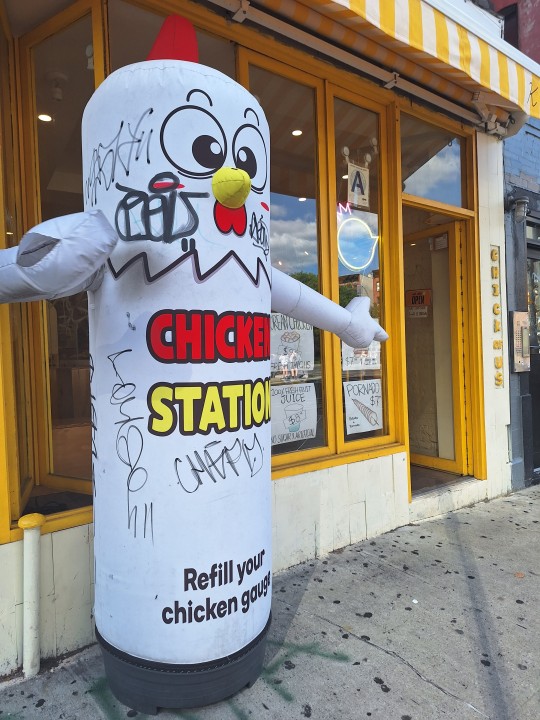
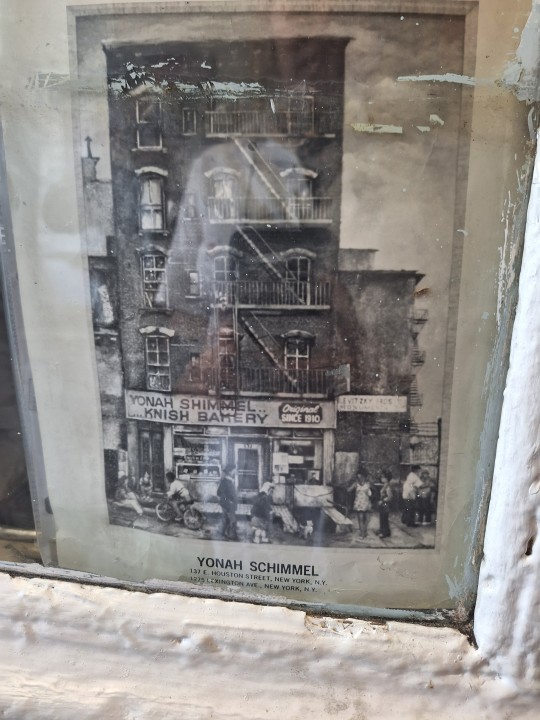
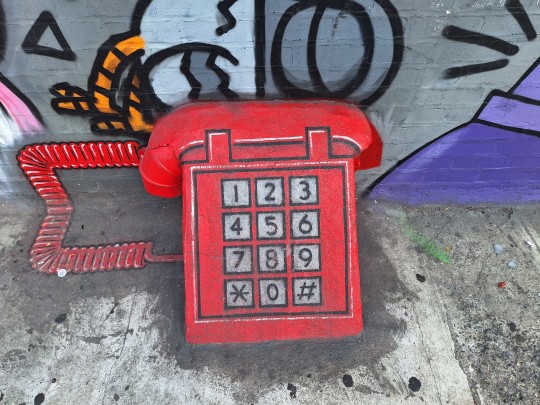
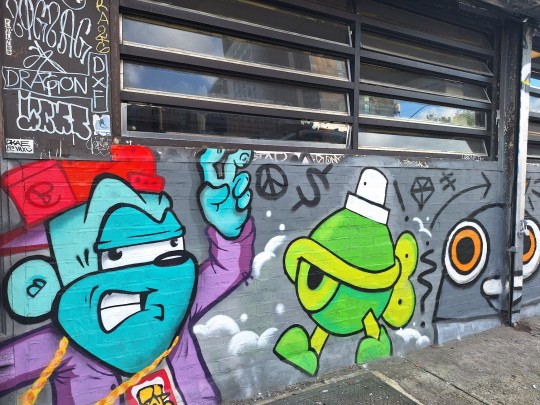
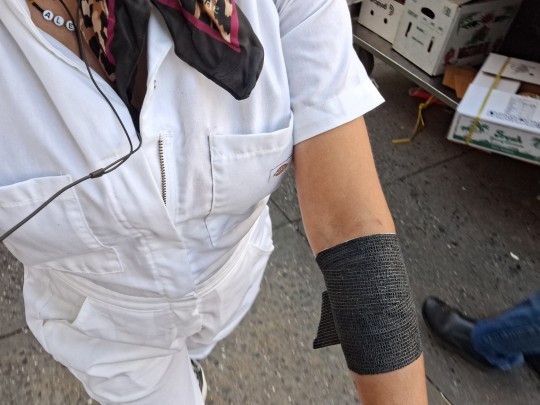
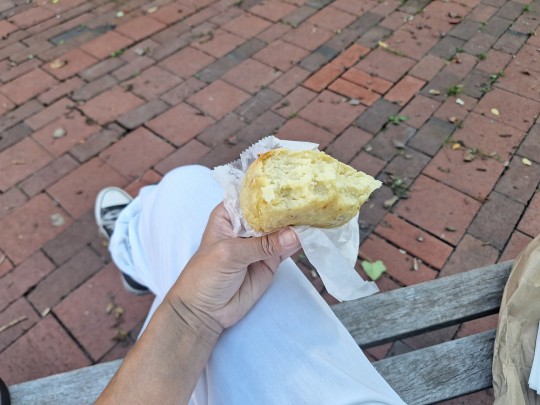


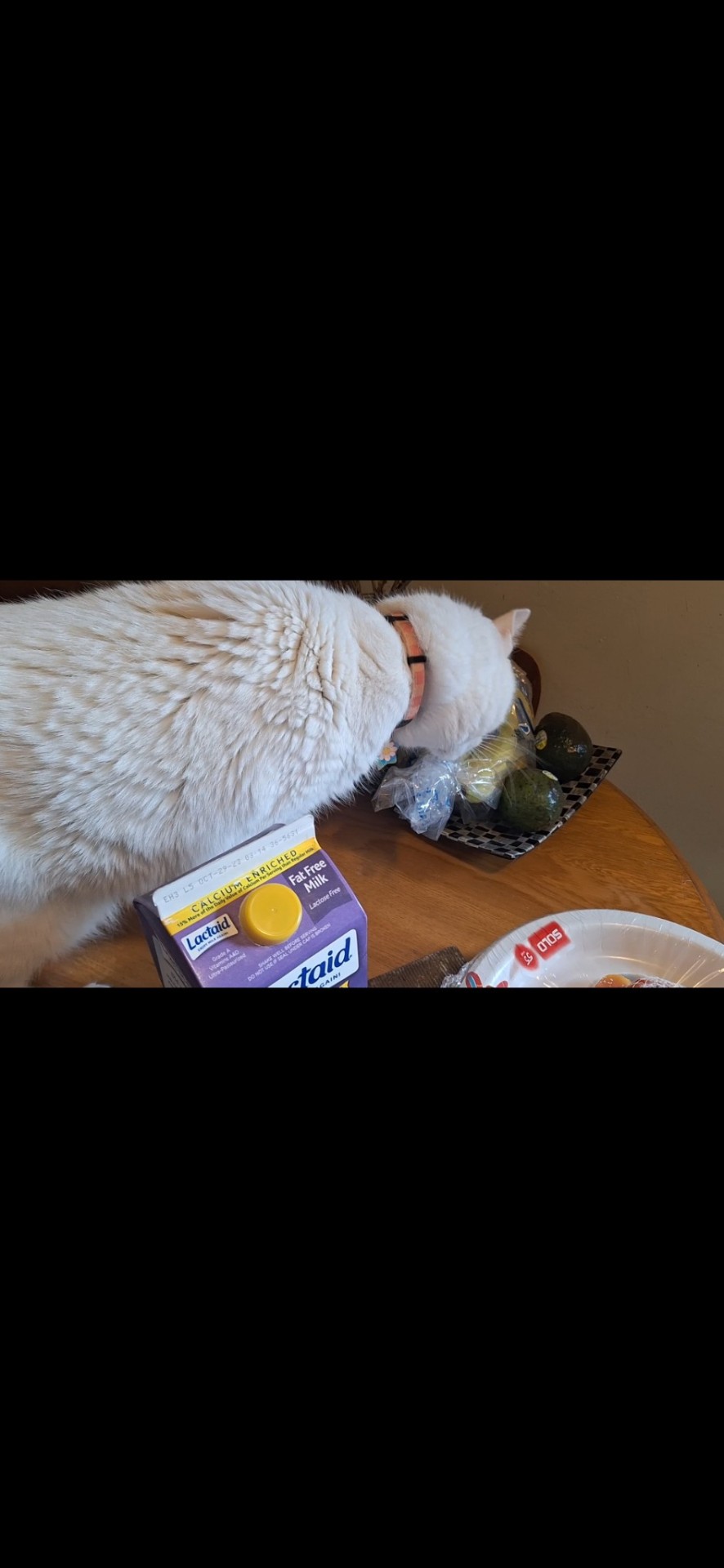
& boobs & plants, theres neko making out with banana bag
1 note
·
View note
Note
https://youtu.be/dZyxheCtYx8
(link!)
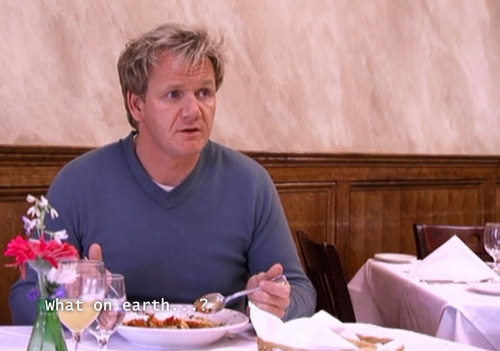
#this put me through the five stages of grief#i was kinda excited at first bc i thought omg i havent seen this in years#we can talk about elsa gate#but nope#it was just potato knishes except WORSE#at least i get to use my favorite image of all time#have a blessed day everyone#ask#anon#caitie chats
5 notes
·
View notes
Note
A long time ago I remember someone mentioning that "I'm here to see doom" trend was inspired by a vid you made and I was wondering if you happened to remember which one they're talking about
i do actually! in 2012 i made this throwaway vid not terribly memorable, but i guess someone other than me liked rapp snitch knishes as a punchline enough to be inspired by it and take it way further lol
323 notes
·
View notes
Text
Earl Sweatshirt: A Geography of Grief and Growth

I made myself the poet of the world. The white man had found a poetry in which there was nothing poetic….I had soon to change my tune.
—Frantz Fanon, Black Skin, White Masks (1952)
I suggest that we do not necessarily need to hear and know what is stated in its entirety, that we do not need to “master” or conquer the narrative as a whole, that we may know in fragments.
—bell hooks, “Teaching New Worlds/New Words” (1994)
Breakin’ ’em down to micro-fragments.
—Saafir, “Battle Drill” (1994)
What is asked of me is not to ascend but to descend.
—Robert Bly (1990)
1.
Earl Sweatshirt’s arc, swerving and dervishy, isn’t difficult to see, as we’ve witnessed it with him—we’re either interlocutors or interlopers, both with questionable motives. So when Earl looks back on school daze, as he does on “OD,” we look back with him (though ours is often an imperial gaze [HOW COULD IT NOT BE?]). We tee-hee and titter as we hear that “somebody tooted in the student commons,” tooted being the most puerile word for gas he could have chosen. An array of scatological options were ignored. It’s a deliberate gesture toward juvenilia. He doesn’t want his expression to be too mature, ha. He wants to welcome you to the romper room, ha. Remaining a kid until the moment he expires, apparently. So he sets the adolescent scene: the student commons. “The bell rang,” and the accused student was spared the prolonged opprobrium. In about four seconds, the student will begin to post. He “went home and argued in the comments,” channeling his embarrassment elsewhere, talking shit (shit) on the internet behind the safety and quasi-anonymity of a screen—an odd facade. He can walk right up to your avi and diss you. That’s his philosophy. The public humiliation replaced with a private self-possession. The discomfort of the crowd exchanged for the solace of solitude.
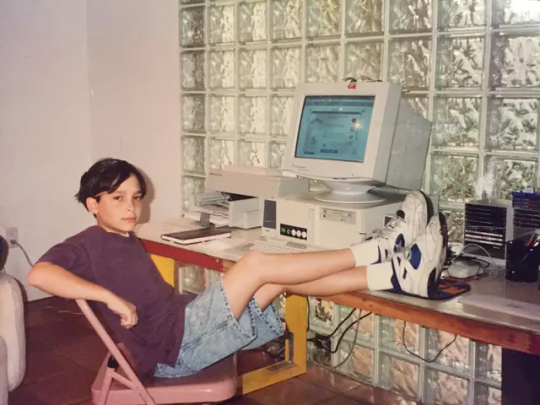
2. DID AN ANGEL SPEAK?
The sonics of “tooted” and “student” are twee, giggle-inducing. We laugh along with the concatenation of m and n phonemes [somebody | student | commons | rang | went | home | then | in | comments]. The near-homophonous commons and comments scan hysterical. With “OD,” it’s easy to confuse adolescence with adulthood. That “somebody” committed this social transgression seems defensive. Maybe it was him—the subject, Earl, Thebe—seeing as how the rest of the song is delivered in the first-person. Embrace the Age of Immaturity. Channel the Fat Boys: Darren Robinson’s flatulent beatbox. Place it beside the disorderly lyrics that Bobbito spits: “I write my own shit from finish to start, / Diminish the heart, / I eat a knish and then I fart.” Like the Cenobites, Earl kicks a dope verse, and only that. “I keep my sentences short,” he says on “EAST.” Beauty is brevity, brevity beauty. A “brevity pack,” as Earl has referred to the Feet of Clay songs. He strives to be live ’cause he got no choice. He runs his own business like James Joyce. In A Portrait of the Artists as a Young Man, a similar flatus incident unravels. At Clongowes Wood College (Stephen Dedalus’s Coral Reef Academy), a “stout student who stood below…on the steps” by the name of Goggins “farted briefly.” Sonically, the sentence shares much with Earl’s opening line. Dixon asks, in a “soft voice,” “Did an angel speak?” But the others react with bellicosity and name-calling (stinkpot; flamingest dirty devil). Goggins doesn’t retreat home; he simply asks, “It did no one any harm, did it?” You still bet that you can harm me, but you don’t alarm me, Goggins might say another way, reprising Del the Funky Homosapien, echoplexing Masta Ace.

3.
Earl “watched the doppler move,” the wavelength shift—the siren song of the “toot,” something insidious—or maybe it’s just the tremors we’re feeling. Woop, woop: that’s the sound of the beast, KRS would say. The frequency shivers. The shift, the movéd doppler, means Earl is immediately older, he’s the child who “get[s] introduced to violence,” even if he acknowledges the line was inspired by his nephew on a playground in South Africa, experiencing apartheid reincarnate as a whiteboy cuts him in line for the slide. Cranly, bullying Goggins, “shove[s] him violently down the steps.” The doppler moves. It slides into violence—like the violence visited upon the MOVE compound located at 6221 Osage Avenue in Philly in 1985. Gradations of black/white. ELUCID mentions the “gray on [his] face showing age” on his Osage (2016) project. Isn’t it strange—how the youngins can turn cold, hoarfrosty, in an instant? The grayscale cover to ELUCID’s tape is graced by a photograph of Birdie Africa, the sole child survivor of the siege. The bone fragments of the MOVE children have since been used in anthropology courses at UPenn and Princeton—case studies. It’s a good trope. Fascinating stuff.
4. TRYIN’ TO TRANSFORM YOU BOYS TO MEN LIKE DAYCARE
When JuJu of the Beatnuts asked, You want pain?, he wasn’t referencing the dramatical-traumatical pain Earl negotiates—JuJu’s question posed a ruffneck and ruffian pain on “Watch Out Now.” Somewhere closer to Marcy, where Jay-Z’s streets was watching. Earl clocks minutes, anaphoric with what he watches (I watched the doppler… / I watched a child…), much like Dylan’s portentous hard rain in which he saw endless racialized visions: “I saw a newborn baby with wild wolves all around it”; “I saw a black branch with blood that kept drippin’”; “I saw a white ladder all covered with water.” For Earl, the ladder is a slide. The saw is watched. Witnesses all.

5.
In “Theory as Liberatory Practice,” bell hooks writes that she “came to theory because [she] was hurting”: “I wanted to make the hurt go away. I saw in theory then a location for healing.” hooks says that she “came to theory young, when [she] was still a child,” citing Terry Eagleton who argues that “[c]hildren make the best theorists.” Children, Eagleton insists, possess “a wondering estrangement.” No wonder, then, that “since a jit” Earl has found no use in “giving up.” He rather make it make sense.
6.
I beat you to the point. Having gained experience, there’s nothing you can tell Earl that he doesn’t already know, that he hasn’t already seen. He’s seen enough, had enough. He doesn’t await the mob’s pursuit; he places the noose on himself, he RE: DEFines it within his own lexicon. His noose, therefore, “is golden.” He’s a young youth, rockin’ the gold [noose], DEATHWORLD goose. He speaks with criminal slang, with a split tongue like ELUCID. Where ELUCID was “true and living, actual—no dull axes, owner of all heads,” Earl is “true and living, lonesome,” with no skulls to keep him company. He has to square up with the “pugilistic moments” on his own.
7. I AM OLDER THAN I ONCE WAS AND YOUNGER THAN I’LL BE
I’m thinking of “The Pugilist at Rest” (1991) by Thom Jones, whose epileptic protag describes a “grainy black-and-white photograph” of the bronze statue called The Pugilist at Rest. The pugilist, with a pocketful of mumbles, has “slanted, drooping brows that bespeak torn nerves” and a forehead “piled with scar tissue.” Torn nerves and scar tissue—sounds like the physical manifestations of grief. And, yes, Earl has grieved, and he continues to grieve—as listeners, we’re accustomed to his grief pedigree, as per Ka. In the past, Earl was “panicking a lot”—he just “want[ed] [his] time and [his] mind intact.” That’s a cold fact.
The narrator of “The Pugilist at Rest” readies himself for a cingulotomy—a psychosurgical procedure that will “cauterize a small spot in a nerve bundle in [his] brain.” In other words, he wants to keep his mind intact. The neurosurgeon promises the operation will lift “the heaviness of a heart blackened by sin,” which is what convinces the narrator to agree to it. Good grief, he thinks, he’s been reaping what he sowed. He “can’t go on like this,” barely living “with a deadening sense of languor,” a phrase which calls to mind Earl’s lethargic, slugabed flow. Feeling insane in the membrane, like he’s a Soul Assassinated, exploring the depths beneath his whooligan behaviors. 376 was a brothel. “Good and evil are only illusions,” Jones writes. In anticipation of the surgery, the protag considers the worst-case [so what, so what] scenario: “If they fuck up the operation, I hope I get to keep my dogs somehow.”
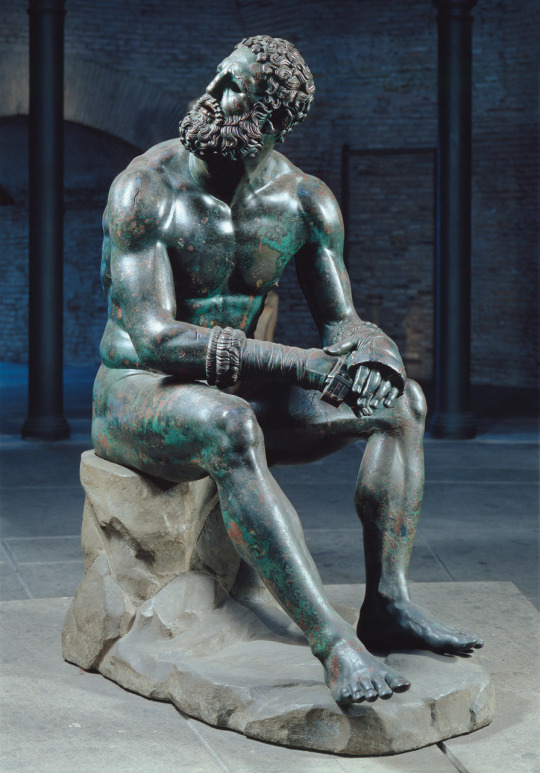
8. MOURNING & MEDICINE FOR MELANCHOLIA
Grief carries its own antidote along with it.
—Charles Brockden Brown, Wieland (1798)
“Grief is the door to feeling,” Robert Bly says. But Earl, on “Grief,” told us he “ain’t been outside in a minute”—and that minute, whether we’re speaking with criminal slang like Nas on “It Ain’t Hard To Tell” or not, is an eternity. Earl hadn’t crossed that threshold, hadn’t kicked in that door. MIKE would realize it much later on “No Curse Lifted (rivers of love),” how you “had to walk through the grief,” even if it “was the worst feeling.” In 2015, though, Earl found these passageways distorted. Like the undulating photograph on the cover of his first mixtape. Like the blur-obscured selfie on the cover of Some Rap Songs. Like the static-scrambled cover of I Don’t Like Shit, I Don’t Go Outside. Earl’s dealt in fragmentary confuzzled noise for a full career. He’s been standing on the corner, red burnt, moving down alien lanes paved by GBV, greenthinking to himself. It ain’t hard to tell that Earl “don’t act hard” and yet is a “hard act to follow.” The density or opacity of his exterior notwithstanding, grief don’t come easy. “As men,” Bly says, “we’re taught not to feel pain and grief as children.” So Earl spits somnolent, numb-tongued and slack-jawed. Like he said on “Cold Summers”: muffle my pain and muzzle my brain up.
“I’ve been alone in my shit for the longest,” he spit on “Grief,” and in work as recent as “Vin Skully,” he’s still figuring out “how to stay afloat in a bottomless pit.” Bly says that “we receive something from our father by standing close to him—something moves over that can’t be described in material terms.” Bly speaks of being in a “conspiracy with his mother” from early on. Earl finds himself “thinking ’bout [his] grandmama” while he wallows and lies in a bottle. “Grief” catalogs all the things his mama taught him. Earl’s work, of late, is autodestructive. He peels away and pastes back haphazardly. He vibes with this Bly shit: “If you can deny something so fundamental as grief in the whole family, you can deny anything. And then how can you write poetry if you’re involved in that much denial?”

Bly goes on to quote Alice Miller, the psychoanalyst who gave us The Drama of the Gifted Child (1979): “When you were young, you needed something you did not receive, and you will never receive it. And the proper attitude is mourning.” Mourning is the proper attitude, not blame—mourning. Mourning makes its way through moaning and mumbling—Earl’s current intonation. On “Grief,” he “cut the grass off the surface [and] pray[s] the lawnmower blade catch the back of a serpent.” Philip Larkin’s poem “The Mower” (1979) leans more literal: “The mower stalled, twice; I found / A hedgehog jammed up against the blades, / Killed. It had been in the long grass.” Larkin’s speaker genuflects before the innocent critter, recalling how he “fed it, once.” Now, he mourns how he has “mauled its unobtrusive world, / Unmendably. Burial was no help.” Earl, of course, is less forgiving of the serpents in the grass. They’re threats, not friends. Still, a void opens up when the mower—(and let’s not forget the lawnmower is a modernized scythe)—does its mowing. Grief is the door to feeling, and on the other side:
Next morning I got up and it did not.
The first day after a death, the new absence
Is always the same; we should be careful
Of each other, we should be kind
While there is still time.
9. NOBODY KNOW WHO MADE THIS WELL, FOR IT WAS HERE WHEN I WAS BORN
“Come get to know me at my innermost…”
Riveting, Earl raps. Earl raps are riveting. We fix to the flow—riverrun, past Eve and Adam’s. We’re invited to know Earl, to become familiar, and his “innermost” is a constant vacillation between optimism and [afro]pessimism. The sudden switches—these switches on bitches like fixed with hydraulics—establish what Danny Schwartz, writing for Rolling Stone, called an “uneven terrain.”
Earl’s “family business [is] anguished,” and that’s recognizable. We’ve known Earl (on “Chum”) with the “pendulum swinging slow” and low. He holed up, hostage-like, in his “heart’s bottomless pit.” Poe’s “The Pit and the Pendulum” (1842) brand of captivity. “I was sick,” that narrator says, “—sick unto death with that long agony.” Something tells me there should be an exclamation point there (SICK!). Earl Sweatshirt was down, down, down. “I was in the fucking pits for like 10 months post my pops dying,” he said in an interview. The Spanish Inquisition ain’t shit.
But for these countless downs, “OD” tracks the ups like naloxone in the nasal membrane. “Now I need atonement,” Earl notes—he makes a case for reparations. He “sets the goal[s]” like some motivational speaker. If “half [his] wings is broken,” he can “spread the other for [his] brodie OD.” Somewhat circumspect as he’s “tiptoeing,” yet the approach is laden with “too much love.” Even when his “sister showed in a rut,” he’s joining arms with her and “getting over, sending up.” That rut she walks—like Eudora Welty’s worn path (1941)—is a path through the pinewoods, and she’s suddenly Phoenix Jackson. “She was very old and small,” Welty writes, and she moves “with the balanced heaviness and lightness of a pendulum in a grandfather clock.” Even with her pentium processing and pendulum low, she swings back up—the rise of her namesake. She screams phoenix, her feathers and flames are one skin. “Living in the moment,” Earl raps, and his craft is bars. “You been corrupt”—and, sure, who hasn’t?—but you recover with “some ginabot.” Welty’s Old Phoenix surveys a spring “silently flowing through a hollow log.” She bends and drinks and says, “Sweet gum makes the water sweet.” It’s the equivalent to Earl putting “shilajit in his sippy cup,” which is “healing cuts revealingly.” And, yes, from a “sippy cup,” so we’re back to toddling around again (“Since a jit,” he says). “I can’t give enough,” Earl raps, his last winding-sheet made of nard and myrrh.
10.
We crouch and teeter, caterwauling along the ledges, for we’ve got these clumsy feet of clay. This is the intended effect[/defect]; this is the rubble of what Earl calls the “crumbling empire.” This is us feeling the violent vibes of the “death throes” he speaks of. Why would we expect anything to resemble traditional song or rhyme structure when the earth quakes, civilization trembles, and Earl’s dungeon shakes? His chains have fallen off. The tenor is tremors. He’s living the trife life—hell on earth—but still living. Earl’s done trying to not look down—he embraces an outer appearance which scans dour; he deliberately gazes into the pit, inviting the vertigo, for it “haunts the whole of existence,” as Fanon says. But Frank B. Wilderson III promises a “vengeance of vertigo.”
11.
Gallons of rubbing alcohol flow through the strip, and Earl’s lips. He’s “refilling the pump”—his heart, yeah—but with a sawed-off shotgun, hand-on-the-pump posture. There’s “no concealing it,” not even with a concealed carry permit. He brandishes right back at “the enemy up in arms bearing snubs.” The mood swings; been down so long it looks like up to him. The turns require tourniquets. This is some Battle of Dak To torture—somewhere between Retaliation and the Heavenly Divine. Emotional turmoil seems violent by design, and Earl’s “memory [is] really leaking blood.” Fear not, the blood is “congealing, stuck.” Like Havoc says, “The Mobb rollin’ thicker.” Prodigy cites it, too: “This ain’t rap—it’s bloodsport.” But Earl has known that all along—he’s been “mobbin’ deep as ’96 Havoc and Prodigy did” since 2013.
12.
HipHopDX’s Kevin Cortez referred to listeners having to “sift through the muddle” in order to appreciate the bars, but where muddle suggests a disorderly conduct, a kaos network, Earl’s style, more appropriately, models. The woozy, wavy, and inner-conflict-war-torn vocals model an abstraction that anticipates the listener’s loyalty. This is what I’ve got, brief and cryptic as the gesture may be, the model says. Writing for NME, Dhruva Balram described Earl’s lyrics as “slurred,” but slurry is the form.
13.
If the empire can deploy Orwellian technologies of repression, its outcasts have the gods of chaos on their side…
—Mike Davis, Planet of Slums (2005)
So if we’re giving ourselves over to the woozes and waves, we’ll just as well find ourselves lost. Let’s go—like those tourist books run by students—and let’s wander eastward. Follow our napkin-scrawled directions and disorientations to a somewhere elsewhere. Let’s go east for a second, for a spell, on a lark, in the dark (word to AKAI SOLO). Earl’s bloodwork contains “pieces of slums”—or more aptly, [sLUms]. He’s hand-to-hand with that Jungle Boy MIKE, but also the god Mike Davis. “[T]he cities of the future,” Davis wrote, would be “constructed out of crude brick, straw, recycled plastic, cement blocks, and scrap wood.” Just the same as an Earl Sweatshirt verse is built—under the tutelage and overstanding-sharing, symbiotically, with MIKE. Davis says our cities aren’t “cities of light soaring toward heaven,” but a world that “squats in squalor, surrounded by pollution, excrement, and decay.” Smells like somebody tooted in the student commons. Smells like a slum village, something we’ve smelled before—possibly coming straight from the slums of Shaolin.

14. ACID EASTERNS
Earl trekked to the East and squinted into “one beacon in the dust weaving”—like Clint Eastwood arriving out of the hazy horizon ether of High Plains Drifter (1973). But Earl is heading to the East, blackwards. And though Brother J claimed you can’t define what’s direct from the East, Jeru told us on The Sun Rises in the East that you can’t stop the prophet either. So on “EAST,” Earl traverses a tricky terrain—it’s tricky, tricky, tricky because it’s an acid western landscape: an acid eastern.
The path isn’t direct or linear—it zigs and zags like rolling papers, and stimulates the same. “Double back when you got it made,” Earl says at the start of his journey “EAST.” The objective is to talk sense condensed into the form of a poem like Special Ed once did on “I Got It Made.” Instead, Earl’s poems—his L=A=N=G=U=A=G=E poems—skew [non]sense, go form[less], and vaporize rather than condense. Lyn Hejinian in cinnamon Timbs: “constant change figures / the time we sense.” The narrative is hallucinogenic (note: “how the story careen against the bars”). Earl’s bindle contains “thirty racks and weed [with] no fat in the collard greens.” That’s how he gets funky on the mic like an old batch. That’s how he gets sincerity on the mic: “Off top it’s me—no cap, / I don’t bottle things.” That buck that bought a bottle could’ve struck the lotto, maybe. But Earl’s “canteen was full of the poison [he] need[s].” He gets where he’s going like El Topo, bereft. The “trip was long and steep”—that being an acid trip—so let me see you try to ride a horse into the chasms of the canyon.
“EAST” is a death meditation, a grand duel between Dantean and Donneian lyric voices [he damn-near well should’ve double-tracked the vocals]. In a 2015 interview with SPIN, Earl is asked about the worst thing he did that year, to which he replies: “Umm…acid?” He elaborates: “I took it at a time when I really didn’t need to be taking acid. I had like a fucking existential crisis at, like, four in the morning. But it was tight. We reeled it back.” Jodorowsky called El Topo (1970) an “eastern” in that it “incorporat[ed] ancient eastern wisdom in the materiality of American cowboys.” For Earl, it’s more a rhinestone cowboy—he holds the cold one like he holds an old gun (as evidenced in the “EAST” music video). DOOM was no stranger to grief, of course, and the rumors persist regarding the bad acid that precipitated Subroc’s early demise (“Bad Acid” also being the original title for “December 24”).
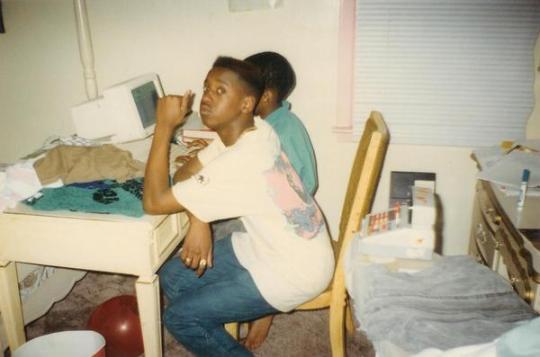
Estranged Earl, alienated—a high plains drifter (not Clint Eastwood, though) who rechristens a town “Hell” through a baptism of blood. Like the Beastie Boys’ version, Earl pulls out a pair of pliers and pulls a bullet out of his chest. He pulls through, true and living. “I’m long distance from my girl,” Mike D raps, so he’s “talking on the cellular,” but Earl is more alienated than that—beyond racking up roaming charges, immersed in dead zones. He “lost [his] phone and consequently all the feelings [he] caught for [his] GF.” Relationships can’t be sustained in these bleak and barren locations. All the blood has been drained from the ruddy faces—sanguine scenery. In his essay “On the Acid Western,” Jonathan Rosenbaum discusses how the subgenre “refuses to respect or valorize bloodshed.” Memory really leaking blood. Congealing. Stuck. To paraphrase Rosenbaum, Earl’s acid eastern “formulat[es] a chilling, savage frontier poetry to justify [his] hallucinated agenda—a view at once clear-eyed and visionary, exalted and laconic, moral and unsentimental, witty and beautiful, frightening and placid.” Earl’s “innocence was lost in the East,” and obsessives speculate whether this refers to Samoa or New York City—how far east we going? Countless spirit-questers pit-stopping at ashrams, searching for that Gifted Unlimited Rhymes Universal guide.
“I wait a beat,” Earl says. His canteen stays filled, auto-replenishes. His “cognitive dissonance shattered” and the “necessary venom restored.” Jodorowsky reportedly once taped snakes to his chest for an experimental theater performance. As if it matters if you think it matters anymore. Or, as ELUCID says, “Words mean things but don’t have to.” Acids and bases. Occident and Orient. Western and Eastern. Up is down.
15. NOTHING LIKE US EVER WAS
Earl’s “EAST” accordion beat—or whatever Orkes Gambus Al Fata instrumentation is at work—is more madcap than madvillainous. In my head is Erick Sermon, though, speaking about how “the flow slow…like a jazz player, or someone on the accordion” on “Knick Knack Patty Wack.” But I’m less concerned with the flow of air through bellows—compressing and expanding—than I am with Earl’s rendering of wind. (Somebody tooted.)
“Let the dead be dead,” Carl Sandburg says at stanza’s end in “Four Preludes on the Playthings of the Wind” (1920). Later, he reports, “The only singers now are crows crying.” And so Earl, a lonesome crow, reminds us—and himself—that “the wind get the ashes in the end” on “December 24.” The whining, wheezing consonance of /-nd/ in “wind” and “end” manages to evoke both the wind itself and the circularity of life. The bar whooshes and whips until we’re at our end, the terminus. That circularity, that full circle: ashes to ashes. “We are the greatest city,” Sandburg repeats, “the greatest nation: / nothing like us ever was.”
Global winds be blowin’—[Of the Soul]—and so billy woods cites that same line on “Haarlem”: “Thebe said the wind get the ashes in the end, bruv.” Check the configuration of the rhime:
The wind | gets | the ashes | in | the end
{birth} {life} {death}
Even that get does work—whether it’s the violence of Death Grips’ “get got”; Too $hort threatening you to “get in where you fit in”; or the satirical sadism of Keenen Ivory Wayans’ I’m Gonna Git You Sucka. The wind wins out—it gets what it wants. On “EAST,” the wind—infinitely personified—“whispered to [Earl], ‘Ain’t it hard?’” It ain’t hard to tell that it is. How about some hardcore? Yeah, we like it raw like M.O.P. But those burns yield ashes. In Adrienne Rich’s poem “The Burning of Paper Instead of Children” (1989), she struggles with the words she uses, knowing “[t]his is the oppressor’s language / yet [she] needs to talk to you.” I know it hurts to burn, she writes, but writing is no less ardent. “The typewriter is overheated, my mouth is burning.”
Let me bring it back to Robert Bly. “In the ancient times,” Bly says, “the movement for the men was downward—a descent into grief. It’s referred to in the fairytale as ‘the time of ashes.’” Ashes, he explains, is the “code word for the ‘out of it’ time.”
We know what it is like to take ashes in our hands. How light they are! The fingertips experience them as a kind of powder… Ashes, we note, find their way into the whorls of our fingertips, cling there, make the whorls more noticeable, more visible, more clear to us. We can take our own fingerprints with ashes.
Ashes, then, aren’t simply for the wind’s taking—ashes are for us, are necessary for us to transcend the grief the boys, the men, and the man-child experience. Bly points to the various cultures that have used ashes in initiation rites: “Ashes Time is a time set aside for the death of that ego-bound boy.” Ready to give up, so you seek the Old Earth. The elders cover your face—even your whole body—with ashes “to make [you] the color of dead people and to remind [you] of the inner death about to come.” Consider Earl’s ashen white face produced in the negative imagery of the “Grief” music video.” “The word ashes contains in it a dark feeling for death,” Bly says. “Ashes when put on the face whiten as death does.”
Earl Sweatshirt is a far cry from knocking blunt ashes into caskets.

16.
Feet of clay, hands of light…
—Moor Mother and billy woods, “Furies” (2020)
For Cheryl I. Harris, Earl’s mother, the feet of clay refer to a vulnerability we all possess no matter how formidable we may appear to become. Earl invokes the King of Babylon’s dream, a dream of an idol “meant to represent all the empires of the world,” echoing Sandburg’s imperious “greatest nation.” Earl believes “we at the feet of clay right now…We posted up live from burning Rome.” Imagine the ash pile. So Earl is here, ostensibly, to turn the disco into something dismal—how Mtume becomes “MTOMB” with its entombed sonics, as if he’s rapping from within a wall, the victim of some Poe immurement.
17.
“I remember woods,” Earl raps on “OD.” “I remember Endom when he wasn’t remembering much, / I remember love healing the ruptures.” I remember is also the refrain and title of Joe Brainard’s poem-memoir, a term which aptly describes much of Earl’s recent output. Brainard’s memories bum-rush into the present:
I remember a dream I used to have a lot of a beautiful red and yellow and black snake in bright green grass.
I remember painting “I HATE TED BERRIGAN” in big black letters all over my white wall.
I remember liver.
If Earl recalls love “healing the ruptures,” then he also likely recalls Fanon: It is essential to convey to the black man that an attitude of rupture has never saved anyone. But Fanon also speaks of young Black men “maintain[ing] their alterity. Alterity of rupture, of conflict, of battle.” Earl, “feeling rushed, grew up quick.” He echoes Biggie, who “grew up a fucking screw-up,” and Raekwon, who “grew up on the crime side” (though Earl’s mama taught him, as we know from “Grief,” how to avoid the pigs, persecution, and prosecution). Eyes on the clock, Earl acknowledges this “trip around the sun” is his “25th,” so “give it up”—his survival alone deserving of a standing [on the corner] ovation. He celebrates life with “gin and rum.” Again, notably not gin and juice—murder was never the case. The only death is the inner death, the death of the ego-bound boy, that Bly describes. Earl’s gin is the drink of be[gin]ning, of genesis (“Light them Phillies up then…”), of Super Nintendo, Sega Genesis, when I was dead-broke, man… “We wasn’t supposed to be alive,” Earl says, yet here he stands.
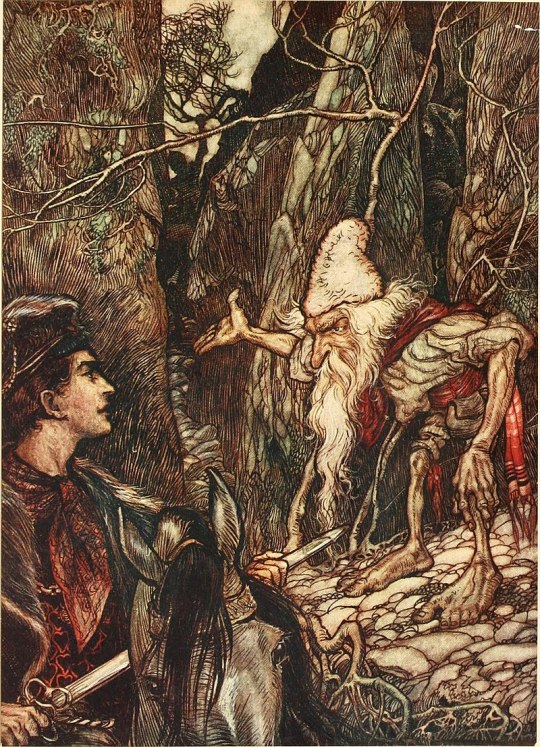
18. RUMINANT
Stare at the Feet of Clay album cover—an evocation of folkloric imagery: a Grimm forest with gnarled tree branches—and the enchanted, diabolic goat lying in wait. Earl’s parasocial following speculate G.O.A.T., of course, but I’m more inclined to mythopoeic possibilities. The Feet of Clay goat glares like Baphomet but frolics like a faun over fractured beats. “OD,” Earl has stated, “brought [him] up out of [his] little wreck”—a wreck of wracked nerves. Adrienne Rich encourages “diving into the wreck” (1973).
I am blacking out and yet
my mask is powerful
it pumps my blood with power.
Earl’s right there with her, submerged and blacking out, but still surviving: Really leaking blood, but refilling the pump.
In her essay “Teaching New Worlds/New Words,” bell hooks invokes Rich’s struggle to navigate the “oppressor’s language.” For hooks, as a Black writer, managing that is even more difficult and historical. “I think now of the grief of displaced ‘homeless’ Africans, forced to inhabit a world where they saw folks like themselves, inhabiting the same skin, the same condition, but who had no shared language to talk with one another, who needed ‘the oppressor’s language.’” hooks explains how Black folks have “remade that language so that it would speak beyond the boundaries of conquest and domination.”
Earl Sweatshirt, especially in his later work, has “altered [and] transformed” English, just as “enslaved Black people took broken bits of English and made of them a counter-language.” The emotional wreckage is also a linguistic heap of fragments—micro-fragments, if we’ve learned anything from Saafir. Earl, in the tradition of his ancestors, “put[s] together [his] words in such a way that the colonizer ha[s] to rethink the meaning of the English language.” “The grammatical construction of sentences in these songs” by Earl, just as by the spirituals of hundreds of years prior, “reflect[s] the broken, ruptured world of the slave.” That crumbling empire Earl mentions was faulted by feet of clay.
At the Museum of Contemporary Art in Los Angeles in 2019, sharing a dais with his mother, Cherly I. Harris, Earl spoke to this lineage directly: “Rap music is slave music—the modern-day iteration of it. Slave communication had to be encrypted. You got a code.” He shifted: “If I know what I’m saying…I can teach it to you.” On Feet of Clay, Earl is teaching to transgress. “I’m cracking my own code,” he says to an audience member during the Q&A, “how it comes out garbled…,” and then he trails off, as if making a deliberate effort to keep his answer cryptic.
hooks always saw language as “a site of resistance.” This included the incorrect usage and placement of words—she called such practices a “rebellion.” Weaponizing syntax. hooks recognized rap music as a continuation of this fight—the latest [sound]clash, hip-hop artists as rebels without a pause—while still acknowledging the collateral damage it might cause.
Rap music has become one of the spaces where black vernacular speech is used in a manner that invites dominant mainstream culture to listen—to hear—and, to some extent, be transformed. However, one of the risks of this attempt at cultural translation is that it will trivialize black vernacular speech. When young white kids imitate this speech in ways that suggest it is the speech of those who are stupid or who are only interested in entertaining or being funny, then the subversive power of this speech is undermined.
Or, as Earl once said on “Chum,” “Too Black for the white kids and too white for the Blacks,” an axiom he’s come to loathe. Perhaps Fanon had the better bar on this subject: “The white man had the anguished feeling that I was escaping from him and that I was taking something with me. He went through my pockets. He thrust probes into the least circumvolution of my brain. Everywhere he found only the obvious. So it was obvious that I had a secret.”
Despite the pitfalls (and, yeah, the pit is bottomless), Earl’s words play [wordplay] a part in retraining minds, all while exorcizing his own demons through a steady diet of ashes and fractures. hooks promises us that “in the patient act of listening to another tongue we may subvert that culture of capitalist frenzy and consumption that demands all desire must be satisfied immediately.” Through his embrace of a language that indulges in passion and cerebral coding, Earl “heal[s] the splitting of mind and body” so common within Western metaphysical thought. Earl Sweatshirt speaks “words that do more than simply mirror or address the dominant reality”; he builds blips into a reality that is worth the rewind.

Images:
Dead Man, dir. Jim Jarmusch, 1995 (screenshot) | Teen at 1990s computer photograph, Unknown (c. 1996) | James Joyce, Age 2, Unknown | ELUCID, Osage album cover (2016), photo by Michael Mally, Philadelphia Inquirer | The Boxer at Rest, bronze statue, Palazzo Massimo alle Terme, Rome, Italy (330-50 BC) | Alphonse Legros, The Pit and the Pendulum, second Plate (1861) | High Plains Drifter, dir. Clint Eastwood, 1973 (screenshot) | Subroc on an Apple IIc, Unknown (c. 1987) | Earl Sweatshirt, “Grief” music video, 2015 (screenshot) | Arthur Rackham, The Water of Life, Grimms Fairy Tales (1916) | Dead Man, dir. Jim Jarmusch, 1995 (screenshot)
125 notes
·
View notes
Text
I Can

Pairing: Dieter Bravo x Marcus Moreno
Summary: Dieter and Marcus meet a second time.
WC: 4K
Warnings: 18+ MDNI Explicit sexual content. Exclusive M/M dynamics. Written in third-person POV, male protagonists, handjob, dry humping, dirty talk, praise kink, a smidge of edging. Mentions of food and drug use. Small angsty moments. AU Marcus Moreno (no wife, no Missy).
A/N: A Saturday night fic drop? Why not? I'm literally just a chaos demon at this point. Big thanks to @writer-wednesday for this prompt and for inspiring me to revisit my boys (and basically create a whole entire universe for them). This is a follow-up to my random little drabble You Can. I have wanted to revisit these boys for so long and when the inspiration struck, I couldn't help but run with it. Thank you to my beloved @jazzelsaur and @magpie-to-the-morning for listening and encouraging every unhinged thought inside my head. The very best of enablers.
Pretend Alleyways Masterlist II Main Masterlist
For any new writing follow @radiowallet-writes and turn on notifications.
----------------
Dieter refuses to spend another meal in some stuffy, overpriced hoity-toity bullshit restaurant. Ever since his plane touched down at JFK he’s been dragged from meeting to table read to some supposed ‘life-changing’ meal and back again. Which, okay, there are worse things in life than a $100 dollar plate of food, but the pretentiousness of it all was starting to eat away at him.
And the problem with the meals in particular is that even if they were somehow able to change the trajectory of his life, there were only so many tiny portions of shaved truffle caviar foie bullshit he could eat.
No. Tonight he needs something else. Cheese, and bread, and beef. Something warm and comforting and covered in just a touch too much grease. Something he can purchase with a 20-dollar bill and bring back to his hotel room to eat while he watches something trashy on television, before downing an edible or two, and jerking himself off until he passed out.
Marissa, thankfully, was a manager who knew when he had hit his limit. She waved him away with only two reminders of his call time for tomorrow and a promise to send a car. Dieter half mumbled his acknowledgment before slipping out of the lobby that housed one of the many studios he had met with that day, turning left and disappearing into the crowded streets of downtown Manhattan.
This was Dieter’s favorite part of the city. Sure, it was too loud. Too busy. Too bright. But hiding in plain sight? That became easy. Even in his most outlandish of outfits he blended in, able to make the walk to his hotel in relative peace.
He passes a myriad of carts on his way, each one smelling better than the last. He’s not sure what he’s craving, but Dieter is positive he’ll know it when he sees it. The sun has completely set by the time he turns the corner, the city lights guiding him towards the Park Hyatt just up ahead. And there, across the street, was a cart, neon signs for gyros and knish calling to him.
The line was only one man deep by the time he jaywalked his way over, the street light shining down like a spotlight, catching the actor’s attention almost immediately. Dieter stops short at the sight of him, the breadth of his shoulders and cut of his jaw enough to drag up a memory that has his toes curling and his belly swooping low. The memory of a frustrated frown shifting into a soft smile, brown eyes wide beneath thick glasses, a kiss that should have lasted a lot longer than it did.
He’s traded the tux from that night in for a black leather jacket and a pair of dark wash jeans, his head bent low, glasses slipping down the slope of his nose. Dieter smiles, stepping in line with a little more bounce in his step, his lips caught between his teeth, his appetite suddenly shifting. It seems he’s finally figured out exactly what it is that he’s been craving.
— — —
Marcus doesn’t really know how he feels about New York. He thinks maybe in another life he would hate it; one where he had a family at home waiting for him, someone to share the day-to-day mundane things with after all the superhero crap was put to bed. He probably would have pulled every string in the book to bring along this hypothetical family, and that thought alone takes his mood from sour to rancid. As it was, home, New York, Paris. It hardly mattered. He just wanted to wrap up the last of this press tour shit and get back to the real work.
There was only one more round of interviews tomorrow, most of them with the entire team. God willing, he could get away with a few quick answers and then nod along as the rest of the Heroics did the heavy lifting.
He was supposed to be out with the team right now. Drinks and dinner that he had (sort of) politely begged off, content with something hot and cheap to eat in the solitude of his hotel room. The smells from the Greek-themed cart had been calling to him since he first walked out of the Hyatt earlier that day and he was intent on stuffing his face full before passing out to the sound of some trashy reality show playing in the background.
He’s just starting to rationalize ordering one of everything, the Heroics Amex card already in the palm of his hand when the flick of a lighter and the smell of a cigarette catch his attention from behind. He wants to frown as the smoke invades his senses, the nasty habit once something that turned his stomach. But now all it does is drudge up a memory, almost 6 months old, but still there at the back of his mind; a dimpled grin and a searing kiss that left him aching.
He breathes in deep, letting the smell fill his lungs, humming at the bitter taste that coats his tongue. If he closes his eyes, he swears can almost feel the warmth of a breath on his neck, a man much too free for Marcus to keep, but who he wanted to anyway.
A loud cough yanks him back to reality, a gentle nudge urging him forward.
“Your turn, Heroic.”
Normally the call out would make his skin crawl, a signal to the beginning of either a very uncomfortable fan encounter or a 20-minute lecture on the interference of government sanctioned vigilantes. But the tone of the man is neither fawning nor judgmental, instead a teasing warmth that almost feels familiar. Marcus turns, an apology on the tip of his tongue and….
“It’s you.”
Dieter Bravo smiles around the cigarette dangling from his lips, all teeth and dimples and Hollywood charm, just as Marcus remembers.
“And it’s you.”
— — —
They end up ordering enough for two small armies, both men overtipping the patient cart owner enough that he promptly starts closing up shop the second they step away with their food. Marcus shrugs, the bag held tight to his chest, compelled to offer an explanation that Dieter didn’t ask for.
“Superhero metabolism.”
“I get it,” Dieter hums, wanting to put the other man at ease. It’s clear he’s wound just a bit too tight, the pressure of whatever responsibilities he carries with him not so much weighing him down as they do hold him up. Dieter thinks, assumes, the joy of being a hero left Marcus Moreno far too long ago, and he wonders if he could help him save just a tiny piece of it. Or at the very least get the man to smile once before they part ways again.
“I’m up for this gladiator thing. I have a feeling once I get back to L.A. it’s going to be all protein shakes and boiled chicken and green-colored juice. Probably best to indulge while I have the chance.”
Marcus frowns, shaking his head. “That’s not right. Starving yourself to hit some sort of stupid unattainable body image that was set by others.”
“Yeah,” Dieter hums, poking Marcus in one of his firm shoulders. “Can’t imagine what that’s like.”
The other man blushes and shakes his head. “Mine’s mostly genetics. Which…hearing out loud just makes me sound like an ass.”
“Mmm, I actually think your ass could use a bit of work,” Dieter clicks his tongue, eyes drifting around to Marcus’s backside.
His blush only darkens, and Dieter can’t help but delight in the reaction. “I’ll be okay, Heroic. All par for the course! Besides, it’s a 6-month shoot in Morocco. It’s been ages since I’ve been back there.”
“Oh, well…if you need help…I mean before you leave. Shit. I’m pretty handy in the gym, I mean,” he stammers out, hands clinging tighter to the greasy brown bag in his hands.
“Do superheroes make house calls?”
Marcus grinds his jaw to the left, his eyes shifting as far from Dieter’s as they can, but the blush remains. “If it’s something important.”
— — —
They’re staying in the same hotel. It shouldn’t surprise Marcus. Honestly, nothing should at this point, serendipitous coincidence managing to bring the two men together again despite all odds. They cross the street side by side, the doorman quick to open the door with a nod and a wave. Their steps echo through a seemingly empty lobby, most of the hotel guests having stepped out, their nights just getting started.
Dieter moves easily, the hand holding his food swinging back and forth in time with his steps. His jaws works effortlessly at the piece of gum he traded with the cigarette he had been puffing at, the tip of it crushed into the side of the hotel perfectly in time with their entrance. Marcus watches from the corner of his eye, admiring the way the other man moves, as if he’s dancing, each movement as fluid as the last.
The actor chatters beside him, an endless barrage of words that would be easy to write off as nonsense but despite that, Marcus finds himself listening with rapt attention. The actor talks about his meetings tomorrow, a chemistry read he hasn’t quite prepared for, an interview with Variety magazine scheduled directly after. Then he talks about the painting he had started before he left L.A. How he hopes the inspiration is still with him when he gets home.
By the time they get on the elevator, their shoulders brushing in the tight space, Marcus knows the type of bike Dieter owns (a 10-speed he likes to ride down to the pier), how he likes his toast (just shy of burnt, butter and jelly), and his plans for the night (food, edible, jerking off).
Marcus had even been caught up in the moment briefly, his own surprise at seeing the other man loosening his tongue just as it had all those months ago. He had stammered and stuttered in a way that he hadn’t since high school. He can’t seem to decide if he should be embarrassed or not, so he settles for quiet instead, only muttering his floor number once the elevator doors slide shut.
Dieter eyes him over his shoulder, the flecks of grey in the scruff of his jaw illuminated in the low light and mirrored walls. He leans closer, just enough to nudge Marcus’s shoulder, his smile slipping into something more tentative, mint and menthol and something sweet hypnotizing the heroic. He can’t help but match the other man’s movement, leaning in and licking his lips, trying to capture the taste on his tongue. Dieter doesn’t miss it, brown eyes flickering to Marcus’s lips and back again.
“Would you like some company?”
— — —
They ultimately decide to go to Dieter’s room, a joke about seeing the Penthouse tilting the actor’s grin to just this side of wolfish. Marcus is instantly drawn to windows, stretching from floor to ceiling, the whole city lit up, a glaring shine just beyond the glass.
“It seems brighter from up here.”
“The lights are so bright but they blind me,” Dieter sings beneath his breath, spreading out the food with careful dedication.
Marcus smiles at the sound of his voice, marveling at the sudden domestic turn his night has taken before placing his attention back on the skyline. Dieter moves around the couch to join him, carrying that same intoxicating smell with him.
“Haven’t you seen it from rooftops?”
Marcus shakes his head, eyes still glued to the sparkling spectacle in front of him. “The world looks too dark from that angle.”
Dark. Or Ugly. Honest. Yeah, Marcus can see everything from the rooftops, but none of it glittered. Not like this. Not like Dieter Bravo.
The tip of a finger, softer than he expected, touches his chin, the pressure light but insistent, impossible to ignore. He turns to find Dieter watching him, brown eyes reflecting the city stars back at Marcus, and he fights the urge to blink and miss what comes next. They move in together, almost close enough but not, and Dieter laughs, a soft chuckle that rumbles in his chest.
It reminds Marcus of that first kiss, so very long ago, down a dark alleyway, both of them pretending, for just a moment. He takes in a breath, a quick pull of air that steadies his nerves, before finally, finally, closing the last of the distance between them.
The kiss is soft at first, a brush of lips and a scrape of stubble. It’s faint, the sweetest shade of something new between the press of their lips, the taste of mint and menthol permeating his senses. Marcus can’t help but take one more, letting his lips linger on Dieter’s, his hands fitting perfectly along the dip of the other man’s hips.
It’s Dieter who deepens it, one palm sliding along the curve of Marcus’s cheek, the other grabbing where his leather jacket hangs open, fingers clenched into the fabric and yanking him closer. It’s the slip of a tongue between his lips that breaks him, a moan parting Marcus’s lips, the sound only encouraging Dieter to continue.
The hand on his hips pushes him back gently, one, two, three steps before they stop. Marcus pulls away to catch his breath but Dieter keeps him close, soothing the pad of his thumb across the flush of his skin.
“I missed you, baby.”
He wants to laugh, to point out it was just one kiss, and how? How could he miss him when he barely even knows him? But the endearment has him dizzy, the roof of his mouth tacky with desire, and all he can do is nod because yes. Of course, Marcus missed him too. What else was there to do but miss him?
He swoops in for another kiss, this time meeting Dieter’s tongue with his own, tasting him full on and groaning into the feeling. The noise seems to startle something awake in the other man, the grip on his cheek growing tight, his own strangled whine rising up the column of his throat.
When the kiss breaks, Dieter leans in, the scratch of his mustache rough where he hums his request in Marcus’s ear. “Can I take you to bed?”
“It’s been a while,” he can’t help but blurt out, pulling back to watch Dieter’s face carefully, preparing himself for the laughter and the teasing. “Almost 2 years.”
Still, Dieter doesn’t say anything, and Marcus can’t help but explain himself just a little bit more. “Most people can’t handle it.”
Marcus hates to say it. Hates the way it sounds and feels and tastes, the words bitter and biting on his own ears. The harsh, unrelenting truth that what he is will always be overwhelming for those that dare to love him. That the painful responsibilities that were forced upon by the realities of his genetics will always be the barrier around his heart. Most days it was easy enough to ignore, and in the time since had last felt another’s touch, Marcus had found a way to cope, where loneliness was just another weight he would bear in order to do what was right.
Dieter nods, eyes wide and frown small, an equal mix of understanding and pity marked across his features, as if to say ‘yeah, people can be assholes.’
And then he actually says it. “Assholes.”
There’s another kiss and then another, their bodies moving slowly back towards the couch. Dieter's fingers are skilled, pushing and pulling, Marcus’s leather coat hitting the ground seconds before his own. Those same fingers find their way beneath his shirt, mapping the planes of his stomach, the quiver of muscle chasing Dieter’s touch.
Marcus can only cling to the other man, refusing to part from their kiss for more than a second, breath traded back and forth, the only oxygen he ever needed between Dieter’s lips. His touch is insistent, smoothing at his heated skin, fingers digging into the flesh, the almost bite of his nails leaving Marcus gasping high and bright into their kiss. His glasses are pulled off somewhere in the fray, finding a home on the floor behind them.
“The …t-the bed?”
“Figured I’d take it easy on you,” Dieter grins in time with Marcus’s knees bending around the couch cushions.
They fall down together, Dieter immediately crowding into Marcus, his large hand palming where he strains beneath his jeans while he takes care to kiss each and every freckle scattered across Marcus’s. His hips buck immediately, even the gentle touch enough to send him lurching. Dieter is quick to soothe him, teeth nipping at his ear as he coos sweetly, the press of his hand only growing more insistent.
“Patience, baby. We have time.”
There it is again. That little endearment. Sweet and small, and so so much that Marcus can only moan, head falling into the crook of Dieter’s neck. Somewhere above him there is a chuckle, the sound vibrating from one man to the other, and Marcus can only hold on tighter as Dieter tugs at the zipper of his jeans. His breath hitches as the sound of it echoes inside his head, and he feels Dieter pause, only the brush of his thumb on the head of his leaking cock ground them to this moment.
Later, Dieter will confess, sweat cooling on Marcus’s temple, the actor's lips kissing the slick of it away, that he was watching him carefully at that moment. Desperate to see him fall apart, anxious to know if he needed to pull back. It’s then that they promise to say it. Always say it. Exactly what they need and what they want.
Secrets have never done either man any good.
Marcus leans into the light touch, awkward and needy, lips fusing to the curve of Dieter’s neck. There’s the musk of his cologne, something earthy and real clinging to his senses, mixing with the smell of smoke that always seems to burn around the other man’s edges. Marcus is ravenous for him, marking him with a bruising kiss, the steady chant of mine, mine, I wish he was mine thumping inside his chest.
Dieter doesn’t falter, pulling Marcus’s aching length from the confines of his jeans, a loose grip around the base as he continues to stroke the tip softly, gathering the bead of precum with the pad of his thumb. It’s more intimate than he expected, reputations always proceeding those in the limelight. Marcus should have known better, the camera always giving away more falsehoods than beautiful truths.
“Eager, aren’t we?” Dieter teases, not an ounce of cruelty in the words. Another kiss is gifted to Marcus’s neck, the drag of Dieter’s tongue follows, his own groan pouring out of him. “I’m gonna make you feel so good. I promise.”
The effect of his words is maddening, and Marcus takes care to muffle his whine into Dieter’s neck, teeth and tongue still working along the salt of his skin. The actor is only encouraged by this, continuing to purr little drops of filthy encouragement into his ear as he starts to stroke Marcus from base to tip.
“Been too long since someone made you feel this good,” he hums, twisting his wrist lightly each time he strokes up the length of Marcus’s cock, the velvet heat of his skin catching on the other man’s palm. The friction is almost too much, a staggering sort of gasp breaking past his lips as Dieter’s voice continues to coach him through each and every stroke of his hand.
“You look so good like this, baby. So good. You can fuck my hand if you want. Go on, use your hips.”
The prompt is all Marcus needs, his hips canting up to meet Dieter’s touch. His fingers dig in hard, one hand finding purchase on Dieter’s forearm, the other wrapped around the curve of his shoulder. He anchors himself to the other man, fucking up into his fist faster and faster and faster still.
“Feel good? Hmm?” Dieter asks, the hook of his nose pressed into Marcus’s temple, lips teasing the swell of his cheek. “Fucking someone else’s hand instead of your own?”
Marcus stutters out a ‘yes’ the word lost between his cries of pleasure. Dieter continues to indulge in the noises, each one helping to shift the weight of his touch, the grip around Marcus’s cock soft then hard, the pressure building faster than he can take in breaths. He tilts his head, eyes searching frantically, a desperate plea tumbling from his lips and hanging thick in the air between them.
“Kiss me.”
And Dieter does, lips molding to Marcus’s, the tip of his tongue tracing the seam until finally, he parts beneath, another moan for him to swallow. All the while, his pace is consistent, up and down, faster then slower then faster again. It’s indulgent, the way Dieter touches him, relishing in each pulse, every sound, and Marcus loses track of how long it’s really been. The pleasure is blinding, keeping him tethered to the edge of the cliff, release blissfully out of reach.
“Bet you look so pretty, all cock dumb, hmm? I’d love to see that,” Dieter teases and Marcus agrees, can only agree, something ragged taking over his sensibilities.
He continues to move with the other man, rising up into the open air, hips awkwardly meeting each and every caress of his hand. Dieter moves with the same freedom he had in the hotel lobby, his own hips grinding up and down, the length of his cock hard and pulsating where it presses into Marcus’s side. Their kisses only grow more wild, just a sloppy press of lips, off-centered and well-intentioned, as they both work closer and closer to the crest of arousal.
Dieter remains focused, his own pleasure secondary to that of the Heroic’s. The kiss breaks just in time for something white hot to settle at the base of Marcus’s spine, everything grows tight and bright and so so sweet. Teeth scrape along his jaw, the tip of a tongue soothing the same path, Dieter’s words coaxing him up to the top of the hill.
“You’re close, baby. So close. Go on, you can let go. I’m right here.”
It’s all Marcus needs, the last of his strength giving out as everything burns, thick ropes of white cum spilling out of him. Dieter hums, using his seed to smooth out his strokes, and continues to whisper little bits of praise into Marcus’s ear.
“I know. I know, baby. You’re doing so good. Tell me if it’s too much.”
It is. It is too much, the way Dieter keeps stroking his cock, half hard and still dribbling drops of cum around the curl of his fist. But Marcus refuses to stop him, leaning into the painful overstimulation until the tips of his fingers go numb, his moans breaking out into sobs, tears tracking down his cheeks to mix with his sweat. Dieter decides for them both then, his hand finally slowing, giving Marcus a chance to adjust to the light touch before pulling away for good, the palm of his hand sliding a sticky trail up his cheek.
It should feel filthy, Marcus’s own cum pressed into his skin while Dieter grinds his cum soaked pants into the dip of his hips. But even now, Marcus can feel his cock twitch in interest, the moment so very decadent and dirty and leaving him hungry for more. Dieter grins, licking his lips, clearly agreeing with whatever look that is crossing Marcus’s features, swooping in for one more kiss, this one there and gone, a fleeting breath of him that leaves him whining.
But Dieter doesn’t go far, his hand smoothing up to push back an errant curl, brown eyes impossibly deep, and he takes his time to kiss away each and every tear. When he pulls away, it’s only to whisper a quiet promise. “I can.”
Marcus tilts his head, his confusion unspoken, the haze of his orgasm still gripping tight to his senses. Dieter takes it in stride, his smile growing, confident and cocky with how dumb he’s rendered the heroic.
“I can handle it,” he clarifies, dragging his hand down to rest his thumb where Marcus’s lips part, the faintest taste of himself waiting there. “Can you?”
And all Marcus can do is nod. Because. Yes. Of course. Of course, he can. What other answer is there?
----------------
Pretend Alleyways Masterlist II Main Masterlist
For any new writing follow @radiowallet-writes and turn on notifications.
Dedications:
To my dearest, my wonderful enablers @jazzelsaur and @magpie-to-the-morning who have listened to me talk about these boys ALL. WEEK. Literally, every random thought I had about Dieter and Marcus, together or separate, was blasted into their DM's. I have become a woman possessed. The best friends a girl could ask for in these trying fandom times. Thank you both, for loving me and my boys.
#Dieter Bravo#Marcus Moreno#Dieter Bravo x Marcus Moreno#male on male#the bubble fic#we can be heroes fic#pedro pascal characters#Pretend Alleyways
137 notes
·
View notes
Text
here is my 100% accurate and absolutely canon opinion of the marauders and co.’s top artists on spotify
i will not be elaborating nor will i take any criticism
james (not super into music; likes party music/what’s popular): taylor swift (because lily loves ts and he loves lily), post malone, kendrick, j. cole, mitski (he cries to I Bet on Losing Dogs bc it makes him think of regulus)
sirius (guys you can be mad at me for this one but you cannot convince me he wouldn’t be this guy if he was born in the early 2000s): 100 gecs (remus cannot fucking stand it but sirius moshes to stupid horse in the dorm), bladee, yung lean, beastie boys, MF DOOM, and bowie obv
remus (he likes midwest emo and 80s alternative but plays lo-fi when he studies): pinegrove, title fight, david bowie, talking heads, car seat headrest (Body’s is his favorite song), lo-fi beats
pete (ik you all think pete’s taste would be very vanilla but i think he’s a sucker for indie rock and 90s hip hop): the drums, the strokes, radiohead, alex g, the pharcyde, MF DOOM (sirius introduced mfdoom to him and he didn’t stop listening to rap snitch knishes for weeks)
lily (bi girl with bi boyfriend that listens to bi girl music): suki waterhouse, phoebe bridgers, lana, taylor swift, king princess
mary (she’s just really fucking cool and so is her music taste): pinkpantheress, ethel cain, hemlocke springs, doja, ice spice (kicked peter very hard in the shin when he called her mid)
marlene (she reminds me of my best friend so i’m assigning her their music taste): alex g, MGMT, the garden, deftones, the neighbourhood
dorcas (lesbian with lesbian gf that listens to lesbian music): fiona apple, japanese breakfast, faye webster, the cranberries, idigo de souza
reg (hard on the outside soft on the inside; he likes his music to be slow and sad): duster, mac demarco, salvia palth, current joys, tchaikovsky, blink-182 (only because he listens to I Miss You constantly for painfully obvious reasons)
-disclaimer ; my knowledge of evan and barty is very limited this is just the vibes-
evan (enjoys trad-goth/ post-punk/ shoegaze. gets mad if you call him goth. he’s punk!): the cure, bauhaus, depeche mode, my bloody valentine, slowdive
barty (is punk and enjoys punk but completely mis-understands the politics): sum 41, blink-182, the smashing pumpkins, hollywood undead, sex pistols (was very obsessed with the death of sid viscous and thought he was just the coolest)
#thanks for coming to my ted talk#marauders#atyd#wolfstar#regulus black#james potter#remus lupin#peter pettigrew#sirius black#marlene mckinnon#dorcas meadowes#mary mcdonald#barty crouch jr#jegulus#jegulily#choices by messermoon
51 notes
·
View notes
Note
May I request a platonic x reader for Kyle and Ike (or just Kyle) with a cousin reader who has Chunibyo but is still very loving and kind?
I had to look up what that was so I apologize if it’s not what you wanted. But it’s givinggg kaidou (I think) so I based reader off that also you didn’t specify the gender so I made reader a girl
CW: swearing and racist jokes (Jewish)
Kyle is nine in this, reader is in high school and Ike is 5
I was originally gonna add more of Ike but I had already wrote most of it (at literary 1 AM) and the copy and past was being a little bitch
Your aunt Sheila drops you off at her house to stay for the week since your parents are busy. You get out the car to be greeted by your little cousins Kyle and Ike running up to you hugging your legs “Why hello there my minions.” You say confidently making your voice a bit deeper to sound more intimidating while smirking. The laugh at you not taking you seriously “What are you laughing at! If you don’t stop now I’ll have to use my secret power on you two.”
You put your arm up to scare them into submission showing off where your power is hiden. You laugh ‘evilly’ “Oh (name) dear, I hate to interrupt you playing with the boys but can you help me with dinner? Gerald isn’t here right now.” Sheila walks outside with a few groceries in her hands “Ye-yes mam.” You give Ike and Kyle one last look before you walk into the house.
“Minions! Dinner is ready.” You bust into Kyles room to alert them of the food being done. They get up from the spot they were playing in and walk downstairs to the table. “Hey (name) can you walk with me to the bus stop tomorrow?” Kyle asks you with his mouth of knishes some of it falling out. “Sure min— Kyle I’d love to walk you to school.” You smile as innocently as possible to get Aunt Sheila off your trail ‘Whew I almost let my secret identity out.’ You think to yourself mentally sweating.
The next day you hold Kyles hand as you walk down the road to drop him off at the bus stop. You see three other boys standing there, one of them has a blue hat with red poof ball and black hair, another one is fat and has a teal hat with a yellow poof ball, the last one is wearing an orange parka. ‘Hm what an interesting group of kids..they better not mess with my minion or they’ll live to regret it.’ You stare at the boys suspiciously “Uh (name) why did you stop walking..?” Kyle looks up at you confused. You just stand there in silence having internal dialogue. Kyle lets go of your hand and walks over to his friends.
It takes a while for you to actually notice. Your eyes widen once you do and you run over to where Kyle went “Minion! You shouldn’t run off like that, what if I’m not there to protect you!” You look at Kyle angrily. The fat kid starts to laugh  hysterically “BAHAHAH MINION!? GOD JEWS ARE SO WEIRD DUDE!” You stare at the kid for a second absolutely shocked that he said that. You’ve never encountered a person that was this openly racist. “Shut up fat ass!” Kyle yells at the fat boy angrily. His voice brings you back to reality.
The boy continues to laugh loudly “Hey little fat ass boy.” Your voice stops sounding so ‘anime’ like when you talk now. The kid stops laughing and looks at you “If I hear one more thing like that from you, your mom won’t be able to recognize you and you won’t be able to eat solid foods ever again. I bet that makes you real sad huh, you won’t be able to eat all those cheese puffs and fried chicken. How sad.” The boys (including Kyle) look at you silently. You obviously shocked and maybe scared them a little bit.
The school bus pulls up to where we all are “That’s for you guys. Have a nice day at school minion.” The boys silently get on the bus and you hear the fat boy mutter s quiet ‘weak’ before the doors close.
…
…
…
Waiting for something to happen?
#kenny x reader#kyle broflovski x reader#pc kenny x reader#platonic butters x reader#post covid kenny x reader#south park#post covid butters x reader#vic chaos x reader#stan marsh x reader#stan x reader#ike broflovski#ike x reader#platonic#sp x reader platonic#sp x reader#stuart mccormick#post covid stan x reader#kenny mccormick#marjorine stotch#vic chaos#post covid x reader#victor chaos#butters stotch#cartman#south park kyle
46 notes
·
View notes
Text
something about breakfast and meals and food in the marvin trilogy. upside down like a ladle pouring soup. the oldest drinks wine, the baby is wailing. drunk and self indulgent. marvin always eats the finest breakfast in town. my stomach aches. some chatter and some gruel, make me wanna drool, try to make me hungry. i need my breakfast now! she’s an actor from the old school and a lousy chef, i don’t want miracles from heaven just some eggies over spinach over toast. she can’t cook but have you seen her milk a cow? life is rotten. when i say breakfast i mean food. a breakfast over sugar. please drink your tea before it’s cold. pass the sugar, please. i hate his food. is he better than banana? the throwing up, the shame, the silent prayers, the nausea. i got my breakfast, the likes of which you’ve never seen. wash my face then drink beer. then i eat. and jessie blew her meal. same folk acting like from different cultures as they chew their food completely out of sync. we offer food and drinks. we all eat as one. i loves the way they cook linguine. now to make bread, loosen your glands. he filled my coats with candies and notes. i have something rotten. as i put the steak in, i bring home the bacon. love me, feed me. see how quickly he sours. what i love i devour. he makes me smile a lot, especially at mealtime. late for dinner late again. whizzers supposed to always be here making dinner. chop chop chop chop. i was supposed to make the dinner. make it pretty on his plate. have it ready, make it tasty. let me turn on the gas. banana carrot surprise. such a romantic table, knives in place, lots of space to spread out and eat. gourmet version of chicken marengo, took me all day, i’ll say it was worth the time, i lie. i don’t eat at all in times like these. someone’s brought your dinner, someone bringing you your lunch. and throw their knives. have a little scotch. clip the coupons, make the dinner, and love him. we’ll buy the cheese. afternoons we make hors d’oeuvres. baking the bread, sharpening knives. i bathe and drink tea. what i’ve done to you is rotten. shiksa caterer. can we consider who’s gonna cater? delicious food for you, nouvelle bar mitzvah cuisine. dietetic knishes, food that’s from the heart. take a bite and see. there’ll be food like food never before. looking at whizzer is like eating treyf. sweeter than a donut. she saves lives and i save chicken fat. i want lobster. catered kosher! i want the applebaums. don’t talk to me about taste. i cant eat breakfast. and its something i cooked. she ate the food and she got sick. rugelach, gefilte fish. in a kosher morass. try my chicken soup. we’re both gonna cure you, me with my soup, she with her medication. kneidlach. drink a little something til you’re dead. gee, we love to eat and we need something sweet. i’ll be eating hors d'oeuvres. i’ll unwrap the billion hors d’oeuvres and someone please eat them. champagne makes things lovely. drink up, anyone for bubbly? cheers. it’s me who should toast him. i passed around the food then dumped some extra food ‘cause lord knows we’ve got plenty. she’s cooked for some 200 guests. the food tastes really yummy. the wine is very soothing. i feel more rotten than i have in years. meanwhile though it’s tears and schmaltz. who would i feast my eyes on?
#i don’t have the words to string it all together pretty. you get it.#it’s about the growth and personal journey it’s about his relationships and friends it’s about change it’s about love it’s about control it#i am so mentally ill over this motif#falsettos#falsettos revival#in trousers#marvin trilogy
320 notes
·
View notes
Text
someday
someday when the world falters in front of you, look back at me. someday when all you need is an embrace, run back to me. someday when you feel like you're not enough, i will fill your cup with all the warmth you had given to me, come back to me. someday when you have no one to love, love me. love me for i will always be here with baited breath, yearning for your return as you think back to me.
1 note
·
View note
Text
Shuffle your On Repeat 10 times!
Thank you to @oflights for tagging me!
1. Green Light by Lorde.
2. Father and Son by Yusuf / Cat Stevens.
3. bad idea right? by Olivia Rodrigo.
4. yes, and? by Ariana Grande.
5. Once In A Lifetime by Talking Heads.
6. It’s Good To Be In Love by Frou Frou.
7. Trunk Fulla Amps by Self.
8. Rapp Snitch Knishes by MF DOOM.
9. I Am A Little Explosion by Self.
10. Nothing To Declare by MGMT.
I love sharing music, so this was super fun to do!
I’m gonna tag @teledild0nix @lemonlimelea @aboutdrarry @nv-md @rockingrobin69 @rainstormradish @uncannycerulean @veelawings @xanthippe74 @alltoowell-blog Sorry if you’ve been tagged before!
17 notes
·
View notes
Note
So, I just got into the Forspoken fandom (as in my new hyperfixation). So glad I bought it ;A;. And well, I just need to talk to some people who also love it.
I still wonder what Cinta's first encounter with Frey's dad might have been you know? Definitely him buying her a Knish.
What are your thoughts on this, if you have any?
Btw, I know you're more into Cuff's awesome theories and stuff. But my arse needs to talk to someone ;-;.. A smoll but toll fandom.
Hello! Yes, your presence is so appreciated; your gifsets are an absolute delight!
I'm super happy to talk to anyone about this game; I've been focused on it since February c:
Y'know, I haven't thought about Frey's father much. I honestly don't know what his and Cinta's first meeting was like.
I do wonder if her meeting him had any effect on her personality... y'know, how she seems a bit softer while pregnant with Frey, compared to how she was during the war. I like the concept of him being soft, while she was much more stern by virtue of her very serious role.
It's anyone's guess, though. I doubt we'll ever know!
13 notes
·
View notes
Note
Three AM street knish mission
"I'm starving," Midge groans as she follows Lenny down the street, holding his hand as they head out of the Bitter End.
"Why do you think Henny Youngman is so mean about his wife?" Lenny ponders as they wander along, both of them a little tipsy.
"Because it's easy," Midge tells him. "They're easy jokes. You want a joke you don't have to think about? Sink your teeth into the woman who cooks all your meals and does all your laundry and shoves your children out of her vagina. Even if she doesn't like that you make fun of her there's nothing she can do about it, it's not like she can get a bank account without some man cosigning, and if her father is dead she's stuck with her shitty husband who attacks her on stage and oh my god I'm lady Henny Youngman."
Lenny laughs as she stops walking. "Midge."
"I make fun of you and Joel on stage."
"Your jokes are better," Lenny assures her.
"Does that make it better?" she asks.
"Infinitely," he assures her, tugging her along. "C'mon. I think there's a knish cart around the corner, and it's a Saturday. I bet they're open."
"Lenny?"
"Yes, Sweetheart?"
"I really love you. And I hope my talking about how flat your ass is on stage doesn't make you sad."
He smiles and tugs her closer, rubbing her arms. "It makes me very happy when you talk about my flat ass on stage."
Midge beams and kisses him, before pulling away, and taking his hand, dragging him along. "Knish time!"
Lenny laughs again. "You got it!"
43 notes
·
View notes
Text
Stay Golden Sunday: Sophia's Wedding, Part 2
Sophia and Max decide to reopen their pizza-knish stand on Miami Beach. Dorothy picks up smoking to cope with the stress.

Picture It...
Dorothy sneaks into the garage vestibule from the kitchen with a pack of cigarettes. Just as she takes a puff, the smoke detector goes off and Rose and Blanche run in. Forestalling Blanche calling the fire department, Dorothy explains that she started smoking again. She's under a lot of stress, particularly after Sophia's marriage to Max. The couple return from their honeymoon at that moment and Dorothy asks the other Girls not to tell her.
youtube
It's for naught, as Sophia can immediately tell and lays into Dorothy for starting her bad habit again. She promises to quit again. Max and Sophia decide to get settled into their new place. There's just one problem -- they don't have a new place. At some light guilt-tripping from Sophia, the other Girls invite them to stay for a few days while they look for their own place. Dorothy struggles with her cravings.
Three weeks later, Dorothy is in the shower and tells Sophia she'll be out shortly. Without a word, Max enters, takes off his glasses and enters the shower, making Dorothy scream. The other Girls run in and there's more screaming. Blanche tells Sophia that living with Max and Sophia isn't working out and other Girls are uncomfortable. Sophia and Max (who refuses to put on a robe) agree to start looking for a new place immediately.
ROSE: Dorothy, I know what you're going through. I smoked for years.
DOROTHY: You smoked? Rose, that's like finding out Lassie was an alcoholic.
ROSE: Lassie was an alcoholic?! That explains why she always tipped to one side when she waved goodbye to Timmy.
Sophia and Max reconvene at the boardwalk, having not found a new place. They look out at the beach and reminisce about Sal's idea to open a pizza-knish stand on the boardwalk in Coney Island. A nearby saxophonist starts playing, and Max requests Sal's favorite: "It Had to Be You," and he and Sophia slow dance on the boardwalk. Later, the other Girls talk about Dorothy's cravings -- Rose reveals she also used to smoke, to Dorothy's surprise.
Max and Sophia return home and excitedly tell everyone they've found the perfect place and ask to show them. When they arrive on the boardwalk, the "place" is an old, boarded-up concession stand. They've decided to reopen their own business -- though they'll have to live at the house until it gets off the ground. Sometime later, they've got the stand almost ready to go, and the other Girls arrive. They warn Max and Sophia they'll get a cold if they overdo it, which Sophia scoffs at.
DOROTHY: I have to give you two credit. It looks like it's really gonna happen!
MAX: Why shouldn't it happen? I know the pizza business like the back of my hand -- *look at his hand* I never noticed that before. What do you think it would cost to remove something like that?
Smash cut to Max and Sophia sitting on the couch with terrible colds. They're afraid that they won't be able to open in time for the weekend's beach festival and will lose their lease. The Girls cave and agree to help them out. That weekend, Blanche, Rose, and Dorothy are hard at work getting the pizza and knishes ready to go. Rose inadvertently triggers Dorothy's cigarette cravings. Unfortunately, they don't get the customers they're hoping for as no one seems to notice the stand.
Sophia arrives on a wave of better health to check on the stand, and the Girls tell her they haven't sold since everyone's in the water. Sophia decides to show them what's what: She looks towards the beach and starts yelling, "Shark!" The terrified beachgoers immediately surge onto the boardwalk and up to the pizza-knish stand. That night, they excitedly say they completely sold out, and the business is saved.
FIREMAN: Well, we've finally found the cause of the fire.
DOROTHY: Take me away. Cuff me.
FIREMAN: …well, I'd like to take you to dinner first. Then we could play the rest by ear.
Unfortunately, Dorothy gets a phone call and they rush back to the beach: The stand is now a smoking ruin. In tears, Dorothy confesses she snuck in a cigarette while locking up. Sophia forgives her, saying it was an accident. However, a fireman appears and says the real culprit was an electrical issue, and Blanche says insurance will help Sophia and Max rebuild. Sophia and Max? They both say, "Eh," to each other's surprise.
Sophia and Max both come to the same conclusion: The business isn't the same without Sal and Esther. Sophia sends the Girls home for cheesecake, and she and Max sit on their bench to talk. They decide they aren't in love with each other like they were with their late spouses, and are better off as friends. The Catholic Sophia suggests they separate, and Max decides to return to his family in Brooklyn. The saxophonist shows up and offers to play "It Had to Be You" again, and Sophia and Max dance for themselves, Sal, and Esther.
"I don't need a divorce on my record with St. Peter at spitting distance."
Max and Sophia once again put the "whirlwind" in "whirlwind romance," as they fast-track through their honeymoon, starting a business together, and finally a separation based on mutual agreement in a single episode. There's a lot going on here, even by Golden Girls standards. However, I think the saving grace of the episode is the continuity between the two-parter, and because I think it at least sort of addressed the big problem I had with the last one.
ROSE: I don't understand.
SOPHIA: You should have that printed on a t-shirt.
The addition of Max, a man who invades the Girls' sanctuary (albeit by invitation) adds an extra ingredient of humor to the first half of the episode, as they can't get used to living with a man once more. Though when I've lived with men who weren't married to me, I admittedly didn't often have an issue with them joining me in the shower because they've mistaken me for their wife. I'm not sure why Max and Sophia stay with the Girls for three weeks before looking for a house, but it at least provides some conflict.
Max and Sophia's decision to try and reopen the pizza-knish stand that the Petrillos and Weinstocks originally opened on Coney Island is a pleasant nod to the first episode in the two-parter. It's nice to see an expansion on Sophia's life before she moved to Miami to be with her daughter, and to see what she and Sal got up to during their long life together in Brooklyn. I'm not sure if pizza and knishes would do as well on Miami Beach as they would on Coney Island, but I'm not going to pretend I know anything about the food industry.
BLANCHE: Why don't you want to hear about my dream?
DOROTHY: Because it is always the same thing with you, Blanche: Sex, sex, sex. I am tired of hearing it.
ROSE: Maybe that's because you're not getting any, Dorothy.
DOROTHY: Do you want the pot again, Rose?
The issue I had with the first part of the episode was that it almost felt like Max forgot about his recently deceased wife (and Sophia's former bestie) Esther. At the end of this episode, Max admits he doesn't love Sophia as much as he did Esther, and that he prefers to remain friends with her after their separation. He also admits that he misses Brooklyn, where his family and grandkids live, which clears up a factor I hadn't even addressed about how Max must have felt moving to Miami.
As for this episode itself, the problem I have with the primary story about Max and Sophia is that it doesn't seem to flow naturally from part one to part two. At first, the conflict is that Sophia and Max need to find a new place to live, then the issue is them starting a business they might not be able to keep going. They feel almost like two different episodes smashed together -- especially since Sophia simply tells Blanche they'll both be staying in her house until the business gets off the ground, despite them moving out being the motivation to go to the boardwalk in the first place.
SOPHIA: You want a Lifesaver?
MAX: What kind you got?
SOPHIA: Peppermint.
MAX: I don't like peppermint. I like butterscotch. You got butterscotch.
SOPHIA: Does it say 7-11 across my forehead? I got peppermint!
Speaking of the boardwalk, it's one of the biggest non-house sets I've ever seen on this show -- fitting, given we spend over half the episode here. Not only do we have the full-size pizza-knish stand, but we also get to see a large section of the boardwalk, including other shops, which include a palm reader, a newspaper stand, and a candy shop. And mentioning sets, they've redesigned the Girls' only full-size bathroom yet again for the single-scene gag of Max getting into the shower with Dorothy.
There's not a B-plot in this episode per se -- Dorothy's smoking is directly related to the A-plot, and plays a role in its conclusion. She says one of the reasons she resumed the bad habit is because of her stress over Sophia's remarriage, and the married couple staying in the house with them probably doesn't help. We never actually learn if she did kick the habit. She didn't actually burn down the stand, so she may not quit out of guilt -- perhaps out of an abundance of caution over what could have happened? I have no idea.
BLANCHE: Well, how was the honeymoon?
MAX: I tell you, that Disney World hotel was just wonderful. It had everything: Good service, delicious food, a beautiful room!
ROSE: What did you think of the rides?
MAX: . . . they got rides?
SOPHIA: Don't worry about it. You had a good time and you never had to stand in line.
Another issue I have is that Blanche and Rose have far less to do in this episode than they did in the last one. They've managed to lose all interest in Elvis Presley over the course of a month, and have nothing to do in the whole episode except complain about Max, try to help Sophia, and give Dorothy motivation to kick her smoking habit. Rose manages to sneak in several inane St. Olaf Stories, while Blanche's main contribution seems to be as the voice of reason for everyone.
That said, the last scene where Dorothy gets her final resolve to quit smoking and is absolved of her guilt simultaneously, then Max and Sophia agree to part ways, is very sweet and a nice way of tying the whole thing together. Max going home to his family gives a clean break while not requiring Sophia to move back from a different location, and it's a sweet way of paying homage to the two's original spouses. Also, it's always nice to hear "It Had to Be You," especially played on a saxophone.
Episode rating: 🍰🍰🍰 (three cheesecake slices out of five)
Favorite part of the episode
Dorothy dispenses punishment to Rose.
youtube
#golden girls#stay golden#stay golden sunday#picture it#sophia petrillo#rose nylund#dorothy zbornak#blanche devereaux#s04e07#sophia's wedding part two#Youtube
2 notes
·
View notes
Text
Can we please talk about the fact that Jews don't actually exist on Star Trek? Not even people with Jewish names, not even as flimsy a hint as someone dialing up a knish.
If Jews don't actually exist in a sci fi setting then you are making the point that the Final Solution worked at some point before the 24th or 25th century. Just saying.
We decided some time ago that ethnicity-coding aliens was not cool, and there has been ample discussion by people from different backgrounds that erasing a group of people in sci fi implies that they were genocided, though somehow that does not apply to Jews.
10 notes
·
View notes
Text
Todays rip: 01/01/2024
I'm Here to See...
Season 3
Featured on: SiIvaGunner's Highest Quality Rips: Volume AI
Ripped by l4ureleye
youtube
Pop the champagne bottles, its a new year - AND time for the blog to feature its shortest rip yet! Yet even at just 15 seconds of runtime, there's a decent bit to talk about with I'm Here to See..., and its had a surprisingly well remembered legacy on the channel. It remains nothing but a silly, pretty absurd in-joke on the channel, yet its one that's somehow stuck for a lot of people.
In the time it took to read that above paragraph, you've likely already had the time to watch or listen to the rip itself, and may be thoroughly confused or flabbergasted as to what just occurred. Similar in spirit to rips like Windows Wonga Wappa and Big Sus Chocobo, this is a rip that's pretty much a direct tribute to a prior-made YTP effort, this time referencing "im here to see doom" by former YouTube user 3pac shakir. There's...not much of any documentation of how big the channel was, and going by the reactions to I'm Here to See... when it was uploaded, I'm going to guess that it really wasn't an all too well-known edit - just something silly that l4ureleye landed upon and decided to make an edit of. Well, an edit is what we got, and it both confused and amused an entire audience of baffled SiIva fans on its upload.
The repeating section from the intro of MF DOOM's Rapp Snitch Knishes, the repeating questions with varying pitch going back and forth, the loud audio and video distortion as the video's cut off - it's a nonsensical edit that I just cannot get enough of. In preparation for this post, I went through all 20-something iterations and variations of these "im here to see doom"-edits up on the channel, and had a huge grin on my face the entire time. Its simply impossible for me to pick a favorite when the concept is this stupid, silly, yet thoroughly funny althesame.
I get the feeling that newer SiIva fans reading this may be just as, or more confused than back when I covered Sex - Steve Harvey. But look - just go into the playlist yourself, okay? I promise it's way funnier than it has any right to be - and somehow, its kind of mysterious, weird feel played perfectly into the overall tone of Season 3 as a whole. I'm Here to See... is one of the most nostalgic rips of the Season for me just due to how much I was left flabbergasted thinking about it, and how much its future edits would continue making me laugh.
#todays siivagunner#season 3#siivagunner#siiva#l4ureleye#mf doom#heavy rain#quantic dream#detroit become human#ps3#playstation 3#ytp#ytpmv#shitpost#shitposting#Youtube#Bandcamp
5 notes
·
View notes